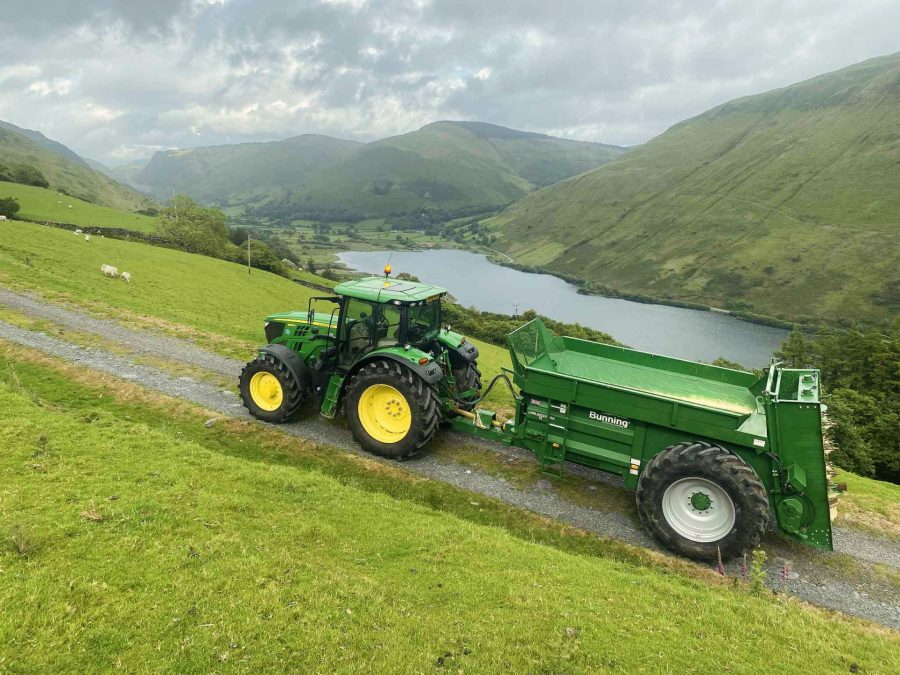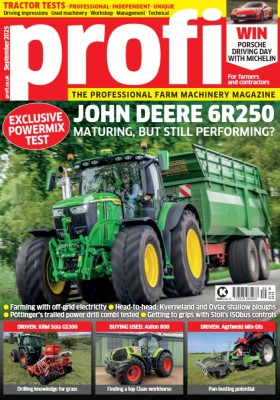With the jump in machinery prices, it takes a bit of nerve and a healthy dollop of ambition to go out and buy a selection of kit with the aim of starting a hire business. Only 18 months ago Rhys Lewis did just that.
KEEPING IT BRIEF
- Initial plans only included implements, but tractors are now being added.
- Rhys had previously worked for Rea Valley Tractors and then Charlies Ag & Turf.
- Increasing machinery prices is making hire more attractive to farmers.
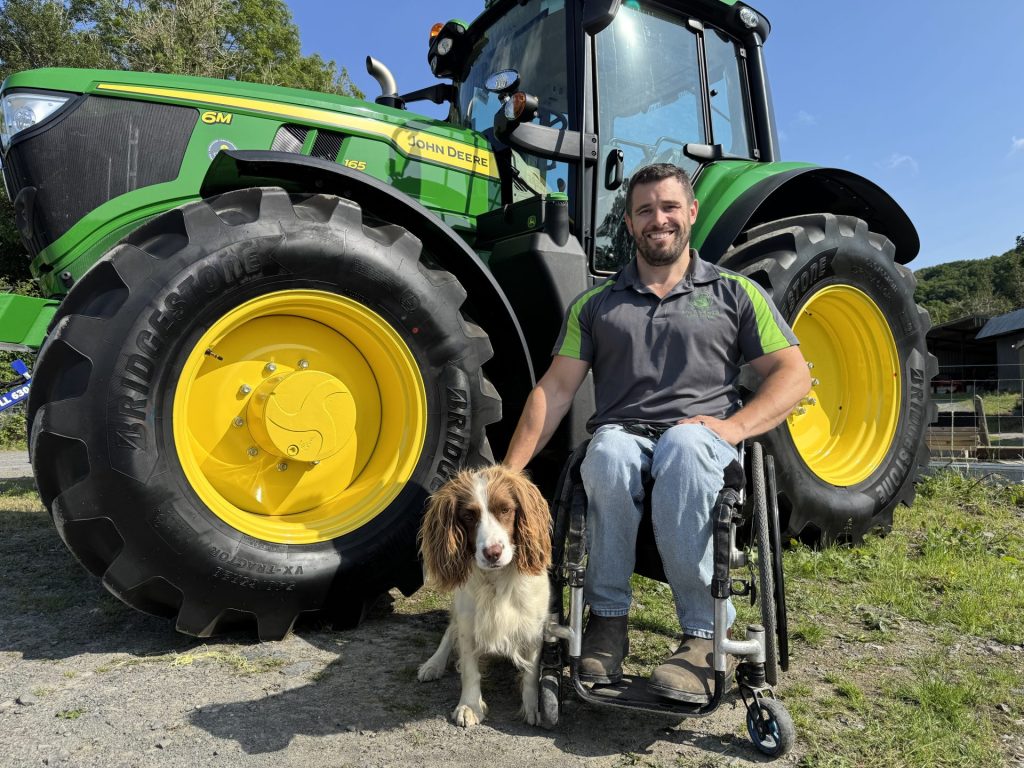
Everyone is aware how machinery prices have increased over the past five years, so you would need to be pretty confident in your business plan if establishing a new machinery hire business from scratch. Rhys Lewis Agri Hire is still less than two years old, and, as the man behind the firm’s name explains, those increasing machinery prices are a double-edged sword.
“There are a lot of smaller beef and sheep farmers here in West Wales who don’t want to spend on new machinery, but instead want to invest in their livestock as that is what makes them money,” comments Rhys Lewis.
“But these same farmers still want to do jobs themselves. Take tedding as an example. A new four-rotor will now be around £9,500 and it is only needed for two or three days per year. Hiring in a six-rotor machine lets them get the work done quicker, and they can still spend money on stock.
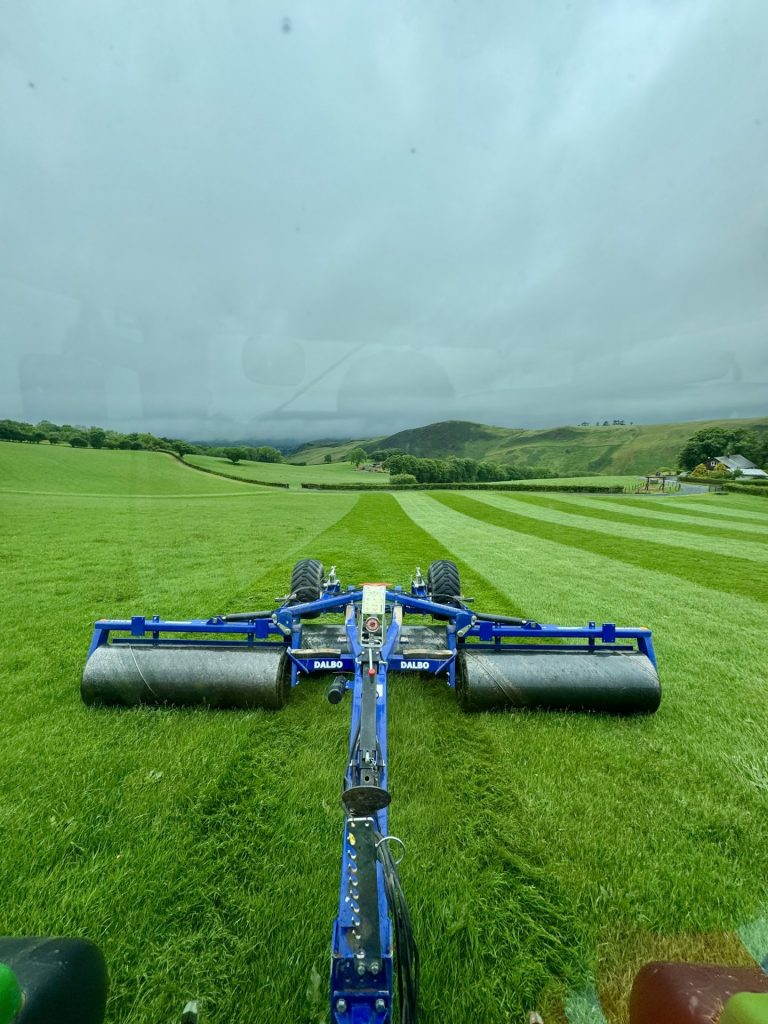
“The three-gang Dalbo flat roller is another good example,” explains the enterprising businessman. “I had one customer, and it would take them nearly a week to roll all their ground with their old rolls, but with the 6.3.0 m rolls they were done in two days. That’s a lot of time and cost saved in labour and diesel.”
So, while it has cost more to get the business up and running, the higher cost of machines today mean farmers are looking at hire as a potential means to remain in charge of their seasonal work.
Idea to reality
As they say, knowledge brings power, and Rhys has been able to learn a lot about the farmers in his area from working for two machinery dealers.
“I started with Rea Valley in 2019 when they had John Deere and then went to work for Charlies Ag and Turf when they took on the franchise in 2022,” he recalls.
“I had the idea when working there about setting up a hire business, and I started to speak to a few farmers about the idea in September 2023. A farmyard, just up the road from my house, came up for rent in the December, and by February we were in business as Rhys Lewis Agri Hire with my wife, Helen, also involved.
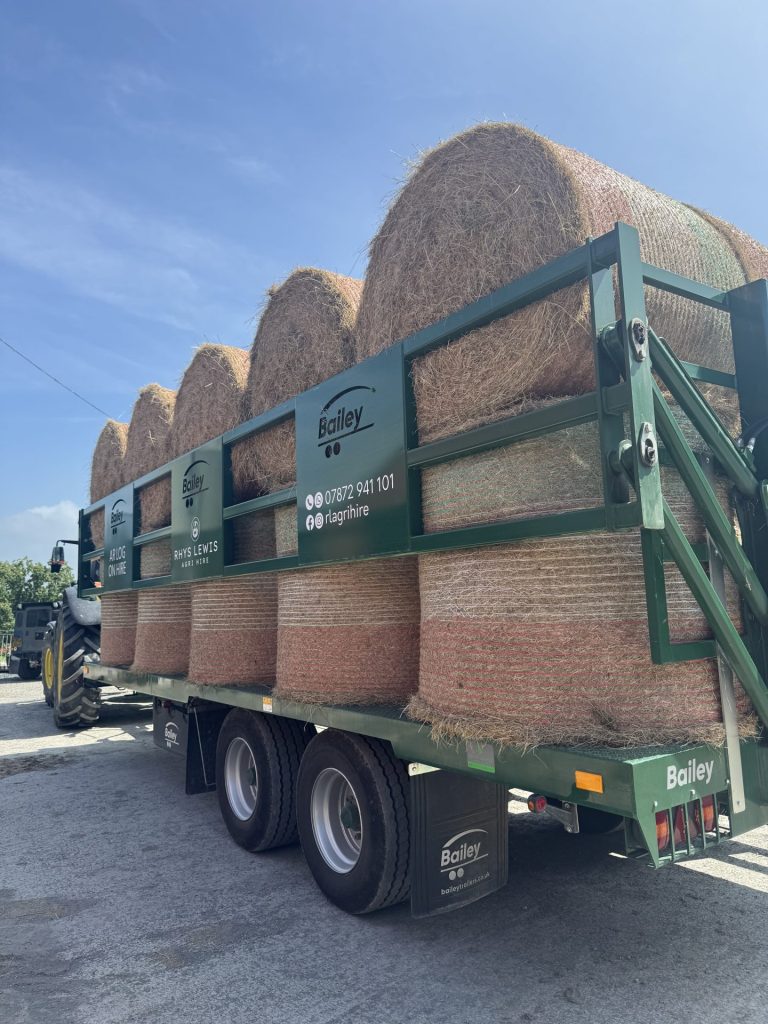
“We started with the Bailey bale trailer with the clamps on, a muck spreader, a power harrow and rotavator as well as the tedder and 6.0m Dalbo flat rolls,” explains Rhys. “When we started the firm, we didn’t even consider tractors because of the price of them. However, Charlies had left a tractor in the yard and, when a customer was picking up the spreader, they asked how much to hire the tractor as well, because they thought it would be able to handler the spreader better than their own tractor. I put together a package deal, and that 155R has now done over 1,500 hours.
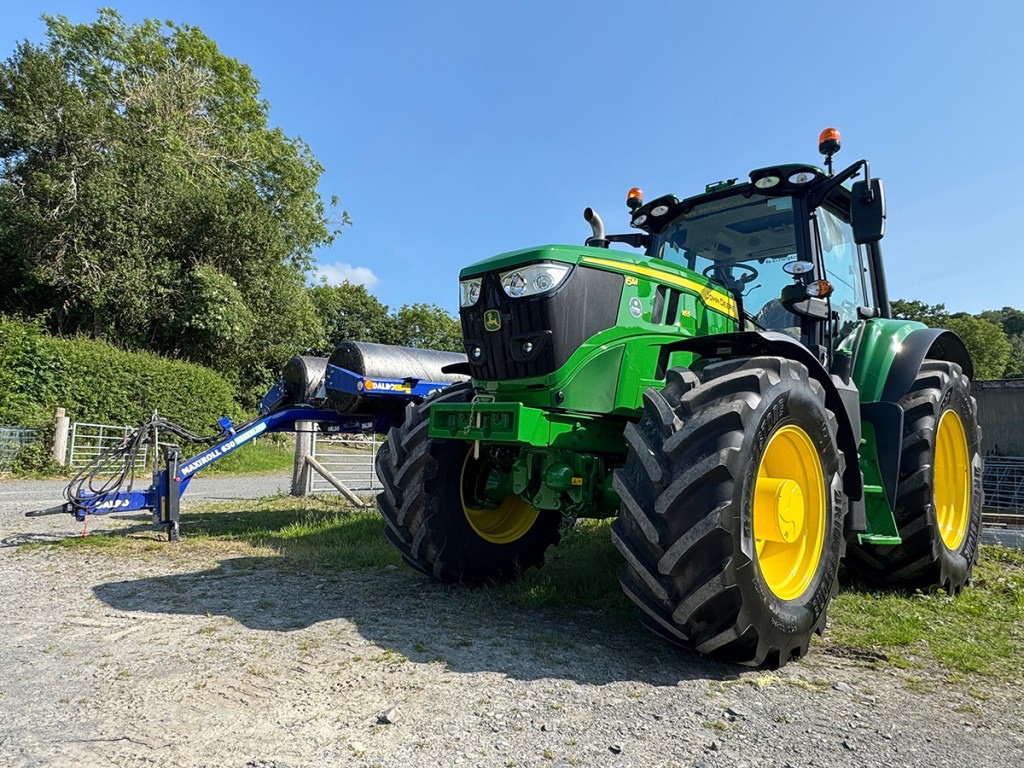
“The 6R is a nice tractor to drive, but not everyone needs all the features, which can sometimes take a bit of explaining,” he says. “That is why I bought the 6M165 when I needed another tractor; it has an AutoQuad and three mechanical spools. In any event, it is not going out on long-term hire — just a couple of days here and there, especially for silage work and muck spreading.”
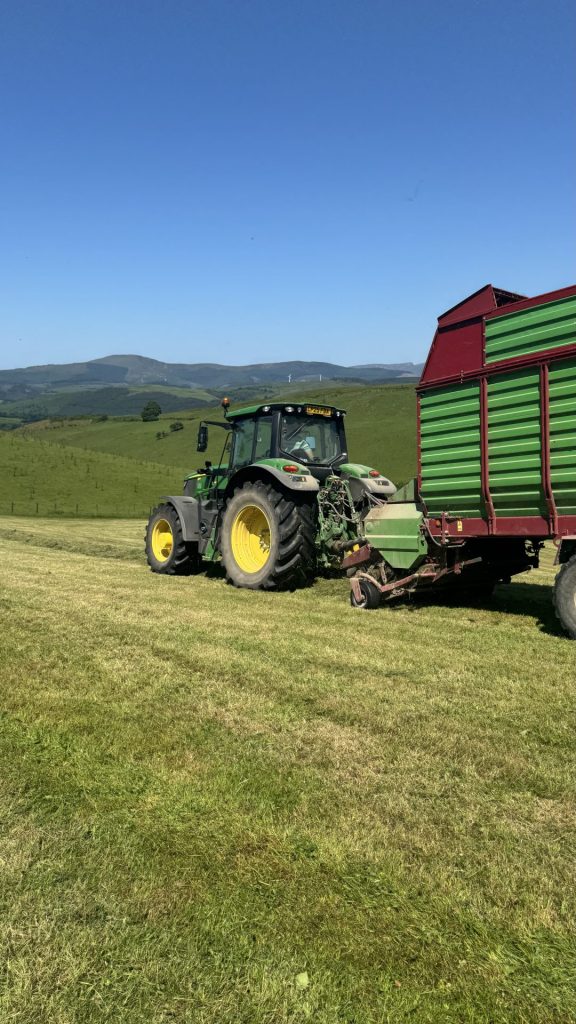
Extra metal
While the machinery fleet is already pretty impressive for such a young business, Rhys plans to have two of each machine to meet demand if one is out on hire or if there was a breakdown. The thought process for now is to renew machines every two years.
“For some of the machines it has been a bit of a guessing game, like the Shelbourne Reynolds dual spreader which has gone really well,” says Rhys.
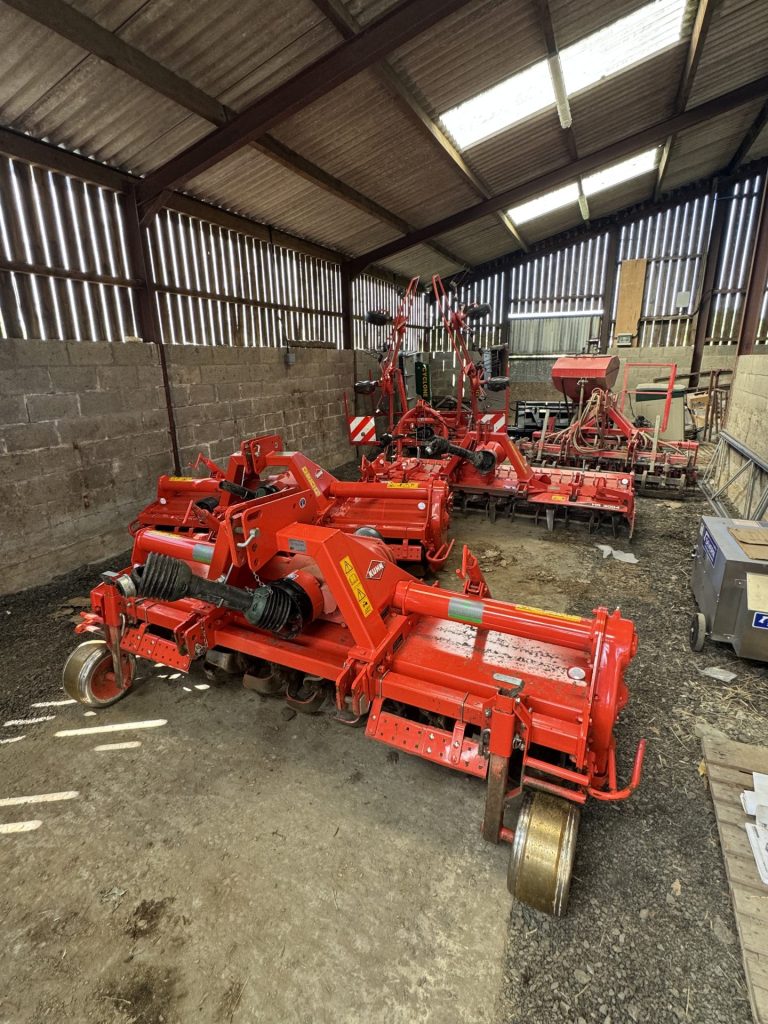
“Other things like the bale handlers and the Sumo grassland subsoiler haven’t been that popular. Likewise I sold off one of the Kuhn power harrows and then bought another rotavator. The 2.5m rotavators have proved popular as they have double the work rate of a plough, and it is harder to find a good ploughman these days.
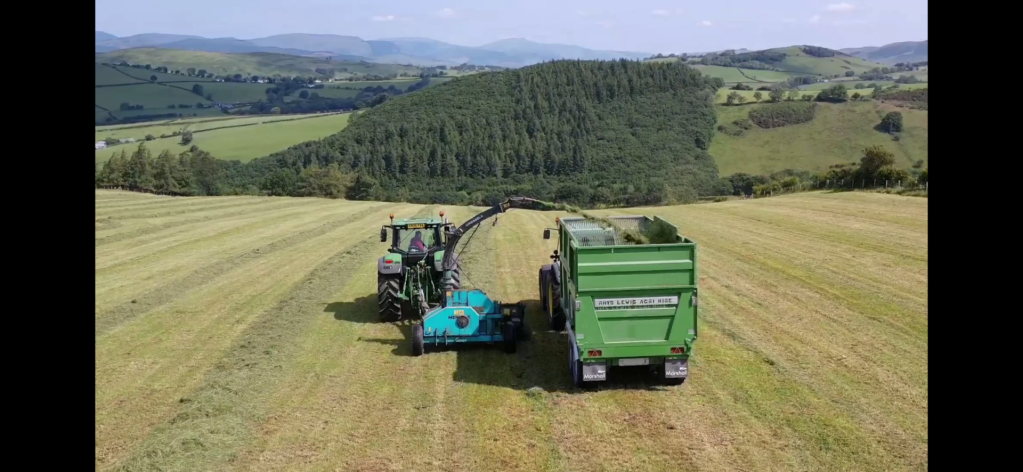
“I have been using local dealers when buying the machines and tend to stick with makes that I have been around already so I know what’s what,” he explains.
“And I can also use the local dealers to do any repairs.”
Getting the word out
Social media has proved a good means of showing people what machines are in the fleet.
“Just putting up a short clip on Instagram of a machine leaving the yard or out on hire is good,” says Rhys. “People then comment or tag friends. We have had machines like one of the rotavators go out to a customer in south Ceredigion, nearly two hours away, who heard about us on social media.”
As the business grows, Rhys will not have met all of his customers, so he has drafted an agreement that is signed each time.
By and large there hasn’t been a problem with damages: the smaller of the two Major Cyclone mowers is probably the most at risk as people sometimes hire it to clear some ground they wouldn’t want to take their own machine on, while the wider version tends to hired by people looking to achieve more output. Hence the future of the smaller machine remaining in the fleet is currently in question.
Even so, the business seems to be thriving, and it is now a case of seeing what other machines will be in demand, such as a slurry tanker. However, the tanker will need to be compact enough for negotiating the steep, narrow roads.
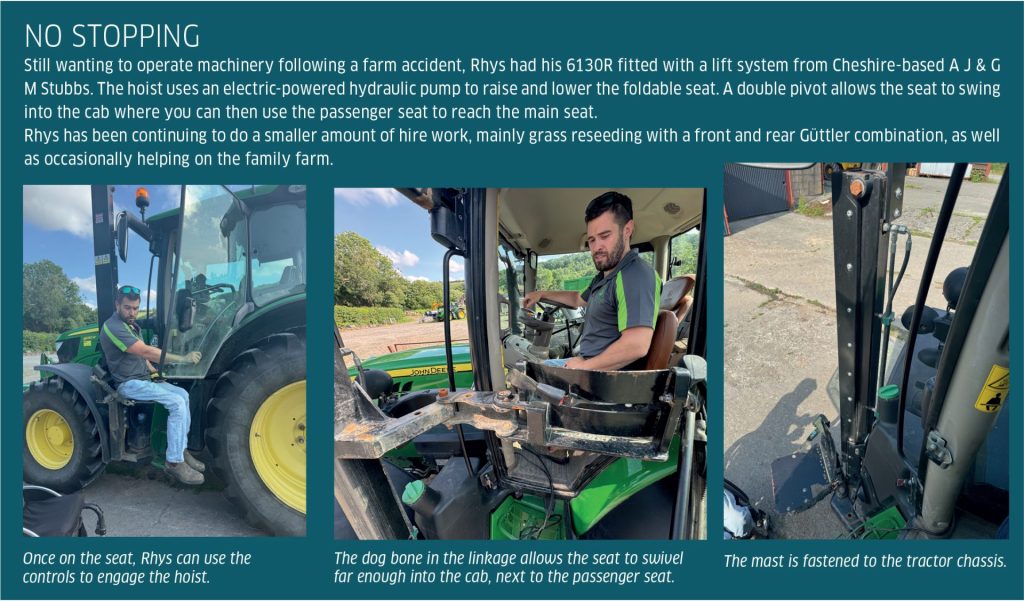
Summary
With the surge in machinery prices, investing in new kit to stay independent is proving a challenge for smaller famers. Having worked for dealers in the area, Rhys Lewis already knew a lot of his potential customer base and was able to use this knowledge of what machinery farmers wanted but couldn’t necessarily justify for limited use. His hire business is now allowing farmers to do the work themselves while also having access to more efficient implements.
Mervyn Bailey
For more up-to-date farming news click here and subscribe now to profi and save.

